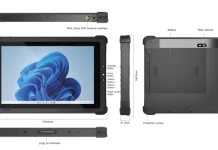With the increasing popularity and adoption of electric vehicles (EVs), the demand for efficient and rapid charging solutions has never been higher. One of the most groundbreaking innovations in this realm is the EV dc fast charger, which has transformed the landscape of EV charging infrastructure. This article explores the significance of EV dc fast charger in accelerating the transition to electric mobility and the technological advancements driving their widespread implementation.
The Rise of EV DC Fast Chargers
EV DC fast chargers have emerged as a game-changer in the realm of electric vehicle charging, addressing one of the primary concerns of EV owners – charging time. Unlike traditional AC chargers, which are typically slower and suited for overnight charging, DC fast chargers offer significantly faster charging speeds, enabling EV drivers to recharge their vehicles in a fraction of the time. This capability is particularly crucial for long-distance travel and urban commuting, where quick and convenient charging is essential for widespread EV adoption.
How EV DC Fast Chargers Work
At the core of EV DC fast charging technology is the ability to deliver high-power DC (direct current) electricity directly to the vehicle’s battery, bypassing the need for onboard AC (alternating current) to DC conversion. This direct transmission of power results in faster charging rates, significantly reducing the time required to replenish the battery’s energy reserves. EV DC fast chargers are equipped with specialized connectors and communication protocols that enable seamless integration with various electric vehicle models, ensuring compatibility and interoperability across different manufacturers.
Benefits of EV DC Fast Chargers
The benefits of EV DC fast chargers extend beyond just speed. By enabling rapid charging, these systems enhance the practicality and convenience of electric vehicles, making them more competitive with traditional internal combustion engine vehicles. Additionally, the widespread deployment of DC fast chargers contributes to the growth of EV charging infrastructure, alleviating range anxiety among consumers and facilitating longer journeys. Moreover, the efficiency of DC fast charging helps optimize energy usage and grid management, supporting the transition to renewable energy sources and reducing greenhouse gas emissions.
Technological Innovations and Future Outlook
As the demand for electric vehicles continues to soar, the evolution of EV DC fast charging technology is poised to accelerate further. Ongoing research and development efforts focus on enhancing charging efficiency, reducing costs, and increasing compatibility with next-generation electric vehicles. Advanced features such as vehicle-to-grid (V2G) integration, smart grid connectivity, and ultra-fast charging capabilities are being explored to address the evolving needs of EV owners and operators. With continued innovation and investment, EV DC fast chargers are set to play a pivotal role in shaping the future of transportation, driving sustainable mobility solutions worldwide.
Conclusion
EV DC fast chargers represent a significant milestone in the electrification of transportation, offering unparalleled speed, convenience, and efficiency in recharging electric vehicles. As technology advances and infrastructure expands, these fast chargers will continue to revolutionize the way we power our cars, paving the way for a cleaner, greener, and more sustainable future.
























![InstaPro APK Download Latest Version 2023 [Anti Ban]](https://olo.my.id/wp-content/uploads/2023/10/instapro-100x70.jpg)